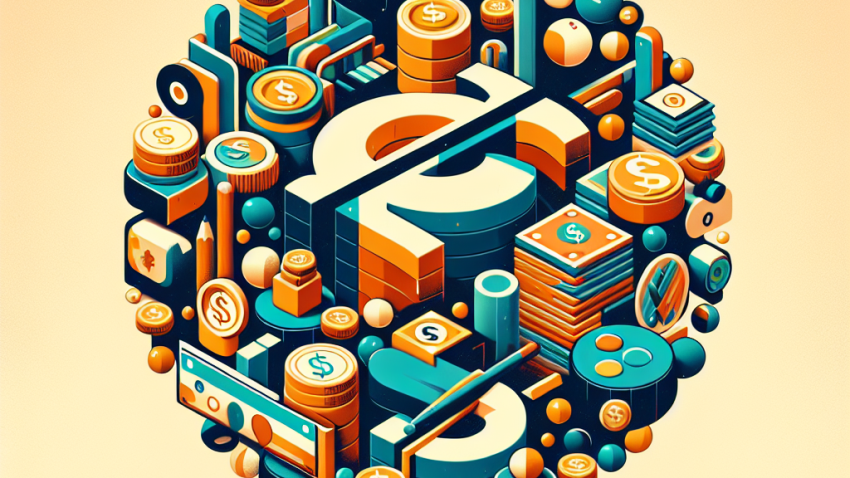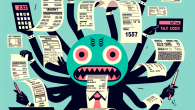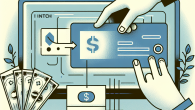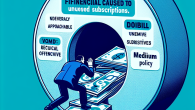
Round-Ups: The Lazy Way I Started Saving Money Without Noticing
What Is a Budget and Why You Actually Need One
Ah, the infamous “B-word.” No, not that one — I’m talking about Budget. If just hearing that makes your eyes glaze over and your brain scream “boring,” you are not alone. But hold onto your coffee, because I’m about to break down budgeting in a way that even your cat would understand… if she cared about her finances.
Hi, I’m Tom Bradley, your friendly neighborhood finance nerd. I’ve cracked the code on transforming complex money stuff into plain-English gold. So let’s dive into budgeting — what it is, why it’s not your enemy, and how it can make your life way less stressful (and maybe even a little fun).
So, What Exactly Is a Budget?
At its core, a budget is simply a plan for how you’re going to spend your money. That’s it. It’s not a prison sentence where your wallet is on lockdown — it’s actually your roadmap to freedom. A way to tell your money where to go instead of wondering where it went. Imagine your paycheck is a bunch of cute little puppies. Without a leash (budget), they run wild. With a leash, they follow your lead.
The Main Ingredients of a Budget
You don’t need a finance degree to create a budget. All you need is to understand a few simple components:
- Income: Everything you earn – salary, side gigs, passive income, birthday money from Grandma. All of it counts.
- Fixed Expenses: These stay the same each month – rent, subscriptions, car payment, etc.
- Variable Expenses: These change from month to month – groceries, gas, entertainment, and yes, that spontaneous pizza night.
- Savings: Paying yourself first. Boom.
- Debt Repayment: High-interest debt is like financial quicksand. You need a line in your budget for crawling (or sprinting) out of it.
Why You Actually Need a Budget
Think of a budget as Google Maps for your money. Rather than driving aimlessly and hoping to end up at “Financial Security Plaza,” a budget gives you step-by-step directions (and yes, reroutes when you miss an exit).
1. It Helps You Control Your Spending
Ever wondered where your money went and realized it abandoned you somewhere between Starbucks and Amazon? Yeah, we’ve all been there. A budget puts YOU in control. You don’t have to give up all the fun stuff — you just allocate money for it on purpose.
2. It Reduces Stress and Anxiety
You know what’s not fun? Wondering if you can make rent. Budgeting brings clarity. You see your income, your expenses, and what’s left over. Financial fog? Gone.
3. It Helps You Crush Your Goals
Debt-free in 2 years? Retire at 50? Travel the world? Whatever your goal, a budget is the plan that gets you there. It’s how your dream stops being just a Pinterest board and starts being a real, live thing.
Different Budget Methods (Pick Your Money Style)
Let’s face it, we’re all wired a little differently. Some of us love spreadsheets. Others want things super simple. Good news: There’s a budget style for every personality.
The 50/30/20 Rule
Popularized by Senator Elizabeth Warren, this is perfect for beginners:
- 50% Needs (housing, food, utilities, insurance)
- 30% Wants (Netflix, lattes, that concert next weekend)
- 20% Savings and Debt Repayment
Easy to remember, easy to implement!
Zero-Based Budgeting
This one takes a bit more work but gives you maximal control. Every dollar has a job. Income minus expenses = zero. That doesn’t mean you spend every penny — it means everything is assigned (savings, bills, fun money, etc).
Envelope System (Cash-Only)
Old school but gold. You put money for each category into real envelopes. When the envelope is empty, you stop spending. It’s budgeting you can physically feel.
Digital Apps Budgets
If you’re more digital than analog, apps like YNAB (You Need a Budget), Mint, or EveryDollar automate the process and give you those dopamine hits from seeing progress.
How to Create Your First Budget (Without a Meltdown)
- Track Your Spending for at least 30 days. You can’t budget what you don’t measure.
- List Your Income Sources. Be honest. Side hustles count, speculative crypto gambling does not.
- List Your Monthly Expenses. Both fixed and variable.
- Subtract Expenses from Income. If you’re negative, don’t freak. Look for spots to cut back.
- Assign Every Dollar according to your goals: savings, debt, fun — whatever floats your financially stable boat.
Common Budgeting Mistakes (and How to Fix Them)
- Guessing Expenses: Always round UP. You’ll be pleasantly surprised if it’s less.
- Not Adjusting Monthly: Life changes. Your budget should too. Update it regularly.
- Forgetting Irregular Expenses: Birthdays, car repairs, holidays… they happen. Plan ahead.
- Making It Too Strict: If your budget feels like a punishment, you won’t stick to it. Build in some fun money!
Final Thoughts: Budgeting Is Freedom, Not Restriction
Listen, I get it. Budgeting has a stiff, suit-and-tie reputation. But in reality, it’s like the GPS in your car — keeping you from getting lost in financial chaos. When you have a plan, you spend smarter, sleep better, and actually reach those goals you’ve been dreaming about since you were binging money hack videos during your lunch break.
Whether you’re living paycheck to paycheck or swimming in cash, a budget is your secret weapon.
Ready to get started and take control of your financial future? You’re not alone. For more tips and guidance, visit our About Us or Contact Us page — because you (and your money) deserve more.
Now go forth and budget like a boss. Tom out.









Leave a Reply